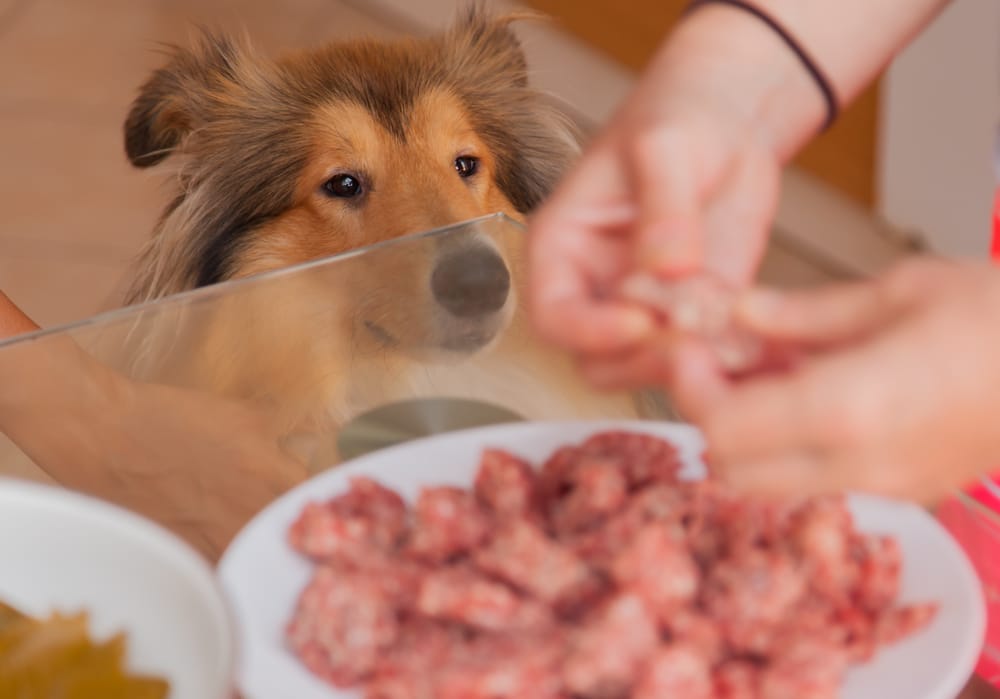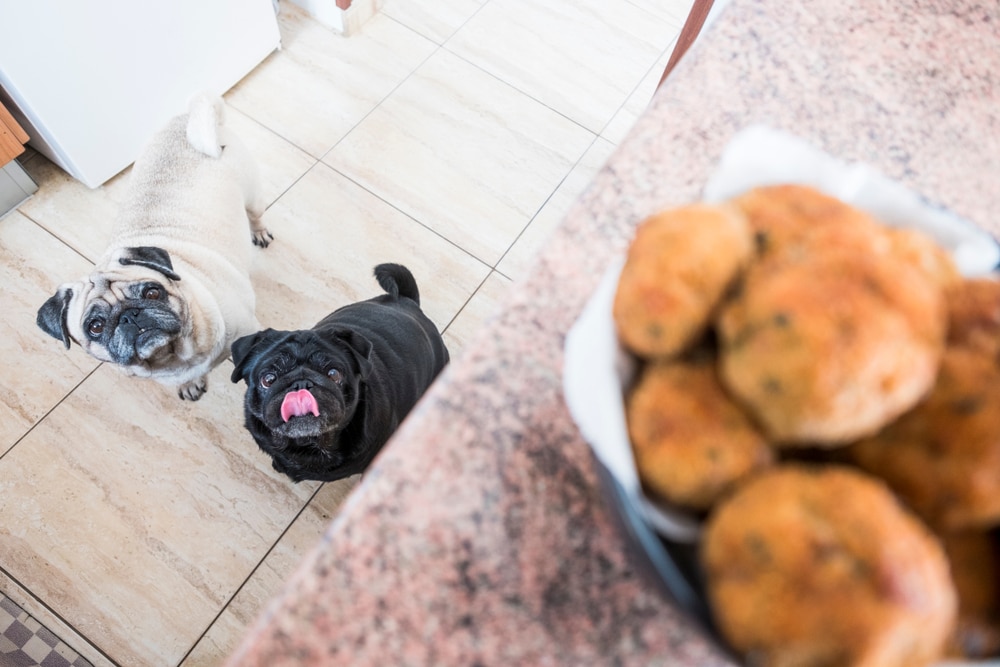A good diet is essential for the health and well-being of our dogs. So, we can offer them some delicious and healthy treats too. When it comes to serving meatballs to your furry friend, is it okay though? But is it safe and good for your dog to eat meatballs? In other words, can dogs eat meatballs?
Dogs can eat meatballs. Moreover, meatballs are a safe and healthy option for dogs. They provide them with protein, vitamins, and minerals. These can be made using ingredients like beef or chicken, breadcrumbs, and eggs. However, store-bought varieties should be avoided as they may contain additives that could be dangerous to a dog’s health.
Table of Contents
- What Are Meatballs Made Of?
- What Are the Health Benefits Of Feeding Meatballs To Dogs?
- Which Ingredients In Meatballs Are Toxic To Dogs?
- How Are Homemade Meatballs Safer Than Store-Bought?
- Guidelines for Feeding Meatballs to Dogs
- 1. Choose The Right Type Of Meatballs For Your Dog
- 2. Make Sure The Meatballs Are Cooked Properly
- 3. Add Other Ingredients In Moderation
- 4. Be Mindful Of Your Dog’s Allergies
- 5. Feed In Moderation
- 6. Monitor Your Pet’s Behavior
- 7. Keep Human Food Away From Pets
- 8. Store The Meatballs In A Cool, Dry Place
- 9. Consult With A Veterinarian
- In Conclusion: Can Dogs Eat Meatballs?
What Are Meatballs Made Of?

Meatballs are usually a combination of minced/ground beef, pork, veal, poultry, or fish with onions, garlic, herbs, and spices. They may also contain ingredients such as breadcrumbs and other grains, eggs, or cheese for added flavor and texture.
Meatballs are baked, fried, poached, or boiled and then served as an appetizer or with a main meal. They can also come with a variety of sauces such as tomato sauce, cream sauce, gravy, and pesto.
What Are the Health Benefits Of Feeding Meatballs To Dogs?
As meatballs are a mixture of different ingredients, each ingredient has its taste and benefits. Making meatballs from suitable ingredients for dogs is beneficial for their health. Below is a list of how:
- Meatballs are an excellent source of high-quality, easily digestible protein that can help support a dog’s muscles and joints.
- Animal-based fats found in meatballs are important for providing essential fatty acids that keep a dog’s skin and coat healthy.
- Meatballs are packed with important vitamins and minerals such as zinc, iron, phosphorus, and Vitamin B6.
- Meatballs are a great way to control the number of calories a dog is consuming, making them an ideal choice for pet owners looking to maintain their pup’s optimal weight.
- Meatballs contain many of the nutrients needed to keep a dog’s immune system in top condition.
- The act of chewing on a meatball can help to provide mental stimulation for dogs, helping to keep them mentally active and alert.
- Meatballs are a great source of energy for active and working dogs, providing them with the fuel they need to keep going.
Which Ingredients In Meatballs Are Toxic To Dogs?
Most ingredients found in meatballs are not toxic to dogs, however, some items can be dangerous for your pet. That reminds us, you’ll want to keep your dog away from the ingredients below as well as chorizo too.
Onions
Onions contain a toxin called N-propyl disulfide which, when ingested by dogs, breaks down their red blood cells and causes anemia due to its oxidative damage to oxygen molecules in the cells.
Garlic
Garlic is a part of the Allium family and contains toxins that can cause gastrointestinal irritation, vomiting, and diarrhea. Higher doses have more serious effects, especially on red blood cells.
Chili Peppers
Dogs can be especially sensitive to chili peppers and other spicy foods. They upset the dog’s stomach and cause irritation and gas, so it’s best to avoid them.
Salt
Always limit salt in a dog’s diet. Meatballs can contain high levels of sodium. It can cause seizures, vomiting, muscle tremors, and diarrhea in dogs.
How Are Homemade Meatballs Safer Than Store-Bought?
Homemade meatballs (speaking of homemade, there’s such a thing as homemade popsicles!) for dogs are safer than store-bought because you can control the ingredients going into them. Store-bought meatballs may also contain preservatives, fillers, and other unhealthy ingredients. The only exception would be store-bought meatballs specifically made for dogs, such as from Milo’s or Blue Buffalo.
Homemade meatballs are made from fresh meats, vegetables, and herbs, which are much healthier for your pet. They also contain fewer calories, so they won’t contribute to weight gain or other health issues.
You can adjust the ingredients to cater to your dog’s dietary needs, such as avoiding common allergens or adding nutrients that may be missing from their diet. Homemade meatballs are also a great way to add variety to your dog’s diet, providing them with an enjoyable choice for mealtime.
Making meatballs for dogs allows you to ensure that the food you’re giving your pet is freshly made, which can help prevent contamination and food-borne illness. All in all, homemade meatballs for dogs offer more nutritious and safer options than store-bought varieties.
Guidelines for Feeding Meatballs to Dogs
Here are how you can make your own meatballs for dogs. We recommend consulting with your veterinarian before changing your dog’s diet in any way though.
1. Choose The Right Type Of Meatballs For Your Dog
Meatballs made from natural ingredients such as turkey, beef, or chicken are generally safe for dogs. Avoid meatballs made from processed meats, such as hot dogs and sausages. These may contain high amounts of fat, sodium, and preservatives that can be harmful to your pet.
2. Make Sure The Meatballs Are Cooked Properly
Raw or undercooked meatballs can contain harmful bacteria and parasites that could make your dog sick. Always thoroughly cook meatballs before feeding them to your pet.
3. Add Other Ingredients In Moderation
If desired, you can add vegetables to the meatballs for added nutrition. However, it’s important to only add these ingredients in moderation as they can cause digestive upset if fed in large amounts.
4. Be Mindful Of Your Dog’s Allergies
Before feeding meatballs to your pet, check with your veterinarian if you’re unsure whether your dog has any food allergies.
5. Feed In Moderation
Meatballs are a delicious treat for your pup, but it’s important to only feed them in moderation. Too many can lead to an upset stomach and other digestive issues.
6. Monitor Your Pet’s Behavior
After feeding your dog meatballs, monitor their behavior for any signs of digestive distress or allergic reactions. If you notice any unusual symptoms, consult with a veterinarian right away.
7. Keep Human Food Away From Pets
Never feed meatballs intended for humans to your pet, as these may contain ingredients that can be harmful to them. Always make sure to keep human food away from pets and only purchase treats made specifically for animals.
8. Store The Meatballs In A Cool, Dry Place
Make sure to store meatballs in a cool, dry place away from sunlight to avoid spoilage. A fridge is generally a good option for keeping them fresh and safe for your pet.
9. Consult With A Veterinarian
Consult with your vet before changing your pet’s diet. They can help you choose the right type of meatballs and ingredients. They can also provide advice on how much and how often to feed them.
In Conclusion: Can Dogs Eat Meatballs?
In short, dogs can eat meatballs as long as they are free from harmful ingredients. Meatballs provide protein and other essential nutrients for dogs but should be given sparingly due to their high fat and calorie content.
When giving meatballs to dogs it is important to check the ingredients list for any potential allergens or irritating ingredients and to also consult a veterinarian for advice.
So, do you have any experience feeding your pup with meatballs? What were the results? Let us know in the comments.
